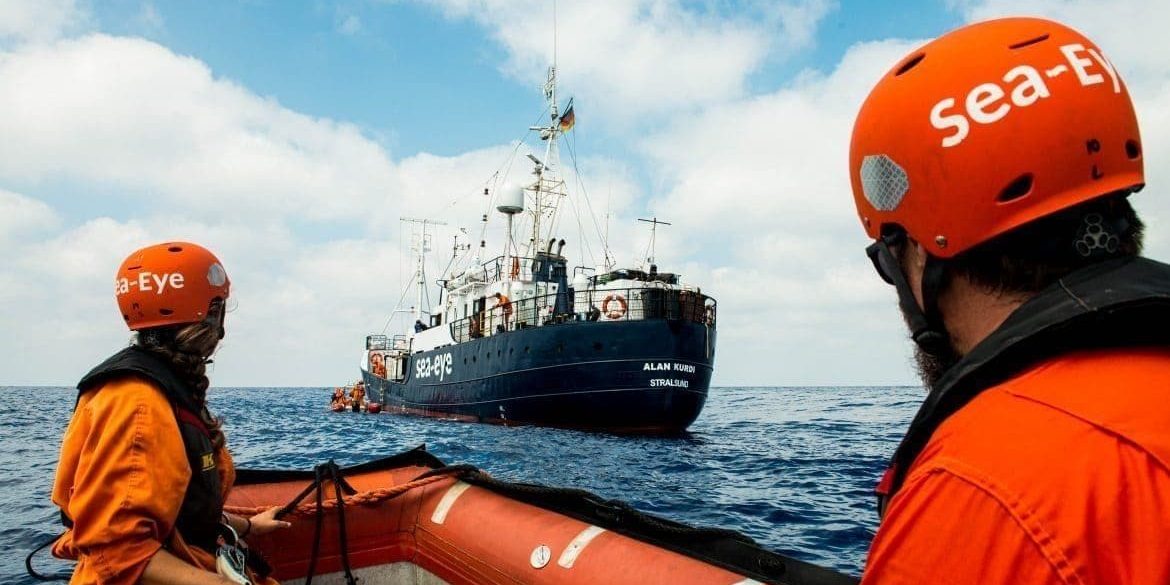While the meeting of EU interior ministers in Luxembourg this week once again failed to make any progress towards ending the deadly state of emergency in the Mediterranean, once again civilian actors set an example of solidarity to the European Union: with a donation of 60,000 euros, Sea-Watch is enabling the rescue ship Alan Kurdi of the Sea-Eye organisation to set sails for the deadliest sea area in the world, the sealing off of which has just cost 28 lives in a serious shipwreck on Monday off the coast of Lampedusa.
The shipwreck of the refugee boat happened only six nautical miles off the Italian island of Lampedusa. The crew of the Sea-Watch reconnaissance aircraft Moonbird has taken part in the search. Yet, only 22 survivors and 13 bodies of women have been recovered, more than 15 people, among them two children and two pregnant women are still missing, says IOM. While EU ministers discussed the ongoing humanitarian crisis in the Mediterranean merely over a lunchtime snack, the blatant lack of rescue capacities continuous to costs lives.
Since the end of June, the Sea-Watch 3 as one of the last remaining rescue ships hat been seized in the port of Licata, Sicily. “Civil sea rescue fills the gap where daily humans are left to die at sea or left to despair in Libyan detention centers by Europe. Solidarity among EU states today is limited to watching some Member States abolish sea rescue tacitly. We civil society organisations are supporting each other to the best of our abilities to counter this blockade policy and the dying in the Mediterranean,” says Johannes Bayer, Chairman of Sea-Watch.
With the donation of 60,000 euros, originally planned to finance the operations of the now seized Sea-Watch 3, Sea-Watch will bear the entire mission costs of the rescue ship Alan Kurdi, which will start operations again at the beginning of next week. “We are pleased that despite the tireless work on the release of the Sea-Watch 3, our donation will enable us to help send a rescue ship into the Mediterranean where it is urgently needed,” said Bayer.
On her last mission in September, the Sea-Eye ship rescued thirteen people from a wooden boat in distress. The final disembarkation of the rescued was not possible until eleven days later after eight migrants had already had to be evacuated for medical reasons, and the situation on board became more and more acute. Once again, no European state had declared itself responsible, including Malta, although Alan Kurdi had rescued the persons in distress within the Maltese search and rescue zone.
“We are happy and thankful to be able to set sails. It is the first time that a sea rescue organisation is helping another in this way,” says Gordon Isler, chairman of Sea-Eye.
The last mission of Alan Kurdi had to be canceled for financial reasons. Donations were no longer sufficient to return to the next mission immediately.
“With the help of our friends, we are operational immediately. Sea rescue is not self-reliant. It depends on the will and skills of many. The donation by Sea-Watch buys us time to seek further dialogue with our supporters and partners to stay operational in the coming months. We thank Sea-Watch and their donors from all our hearts.” says Isler.











